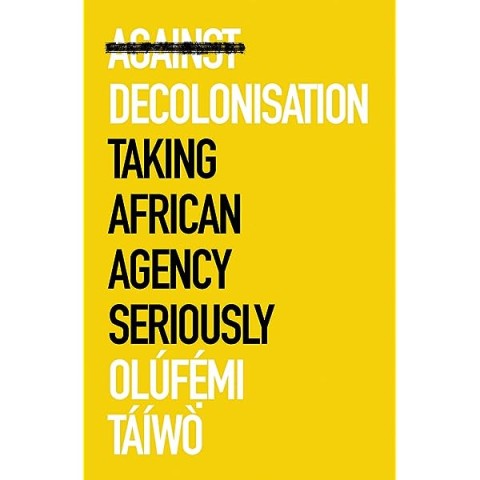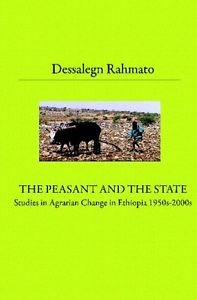In 2022, Olufemi Taiwo published "Against Decolonization: Taking African Agency Seriously" in the African Arguments series by Hurst. The book is provocative and makes some valuable contributions. I also find that the book has some faulty arguments of the straw man and red herring types. For example, in defining decolonization the way he does (see notes below), it provides useful clarity of terms but also seems to disregard a lot of the nuance that the critiqued scholars have expressed. For example, the advocates of decolonization are said to argue that in "short, self-determination should inflect life in ways that are exactly contradictory to those of colonisation" (p. 34), which seems an over-simplification, at best. Another critique of the framing within the decolonization scholarship is the supposed absence of agency (writing about "the post-independence period as if native agency matters little, it at all, is a remarkable failing of the decolonisation discourse" (p. 38)), which seems an inaccurate portrayal of the scholars he quotes, such as Ngugi and Sabelo. Despite some critiques I have of the book, this is worth a read.
The book: "seeks to (1) identify blind spots in current scholarship and direct our attention to how they might be redressed; and (2) show how and why those alternative paths may actually lead to more insights than the existing, dominant orientations. In doing so, I call attention to the themes, thinkers, ideas, movements, programs and writings which are hardly ever referenced in discussions on decolonization. My hope is that expanding our horizons in this way may lead to more robust and, importantly, more accurate explanations of the challenges facing contemporary Africa." (p. xvi)
The terms and definitions: "We should not use the same terms to describe decolonisation1 (the struggle for independence and/or self-determination, the journey from colony to sovereign polity) as we do for decolonisation2 (the continuing dominance in the contemporary world of ideational structures, patterns of thought, etc. ascribed to colonialism)." (p. 40)
Seeming naïveté: "How good can scholarship be if it is blind to the experiences of a significant portion of humanity on account of their 'difference'? Can the 'best' scholarship really be produced if it conveniently ignores the ideas of a particular people and the products of their intellectual engagements with questions that have inspired other peoples to create philosophical models? ... Why not just insist that people write better histories of philosophy without reducing the problem to one of the machinations of colonialism?" (p. 57)
Language: "What is more, in much of West Africa, as part of modernity, English came with Christianity, and the embrace of this language by Africans was not a product of colonial imposition." (p. 125)
Framing: "I suggest that the preoccupation of many Africans with decolonizing is inseparable from our placing colonialism as the defining framework within which to understand and narrate African life and thought. Our past - designated 'precolonial' - is understood in terms determined by colonialism, and our future – postcolonial - is tied to our obsession with leaving it behind. How can we expect to do the latter while privileging colonialism in our own understanding of our history and letting it characterize our discourses beats me." (p. 151-152)


